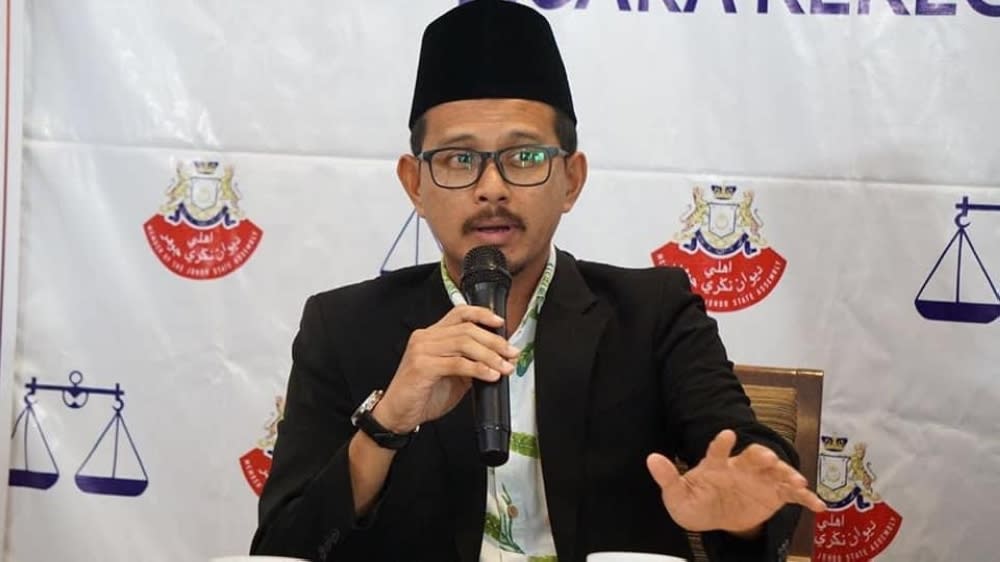Religious speakers without state Islamic council's accreditation may face legal action, says Johor rep

JOHOR BARU, March 8 — The Johor Islamic Religious Council (MAINJ) will take legal action against any individual who is found to be teaching or lecturing Islam without accreditation in the state.
State Islamic Religious Affairs Committee chairman Mohd Fared Mohd Khalid said action will also be taken against the event or programme organiser who is considered to be complicit.
"Johor Ruler Sultan Ibrahim Iskandar has decreed that speakers who teach and give lectures on Islam in this state must be accredited," said Mohd Fared in a statement here.
"Any Islamic teaching and lecture programme organiser using speakers who are not certified by MAINJ is committing an offence to conspire under Section 43 of the Shariah Criminal Offenses Enactment 1997.
"If found guilty, they can be fined up to RM5,000 or imprisoned for a maximum of three years or both," he added.
Mohd Fared said those who are found to be teaching and giving lectures on Islam without accreditation are committing a Shariah offence under Section 119(1) of the Islamic Religious Administration Enactment (State of Johor) 2003 and Section 11 of the Shariah Criminal Offenses Enactment 1997.
He explained that those who are prosecuted for the offence can be fined up to RM5,000, or face a maximum of three years in prison, or both, if convicted.
Mohd Fared said that the credentials required from the MAINJ cover the area of mosques and suraus, as well as any place in Johor.
The move, he said, was in line with Section 118(3) of the Islamic Religious Administration Enactment (State of Johor) 2003 as among the methods for controlling doctrines and beliefs that deviate from Shariah law in this state.
"It is also to ensure that those who teach and give lectures on Islam or matters about the Islamic religion must have a MAINJ certificate,” he said.
Mohd Fared said MAINJ is an Islamic religious authority that takes care of the affairs of the Muslim community in the state to comply with Shariah law based on the Sunni denomination's al-Asya'irah and al-Maturidiyyah teachings which follow the Shafie school of jurisprudence.
He added that this decree however does not mean it is rejecting other schools of jurisprudence or Sufi teachings.
"The Muslim community needs to obey the laws that have been enacted to ensure that the true and correct teachings of Islam are upheld and implemented in this state,” he said.
On March 2, Terengganu’s Islamic Religious and Malay Customs Council announced a ban on talks and sermons by political leaders in mosques and prayer halls.
Johor Crown Prince Tunku Ismail Ibrahim had in January ordered that political discussions are banned in mosques and prayer halls in the state.
Besides the ban on religious talks in mosques and activities involving religious discourse, Tunku Ismail, in his capacity as Johor’s Islamic Religious Council chairman, also ordered that the speakers involved must first be approved by the relevant religious bodies.



